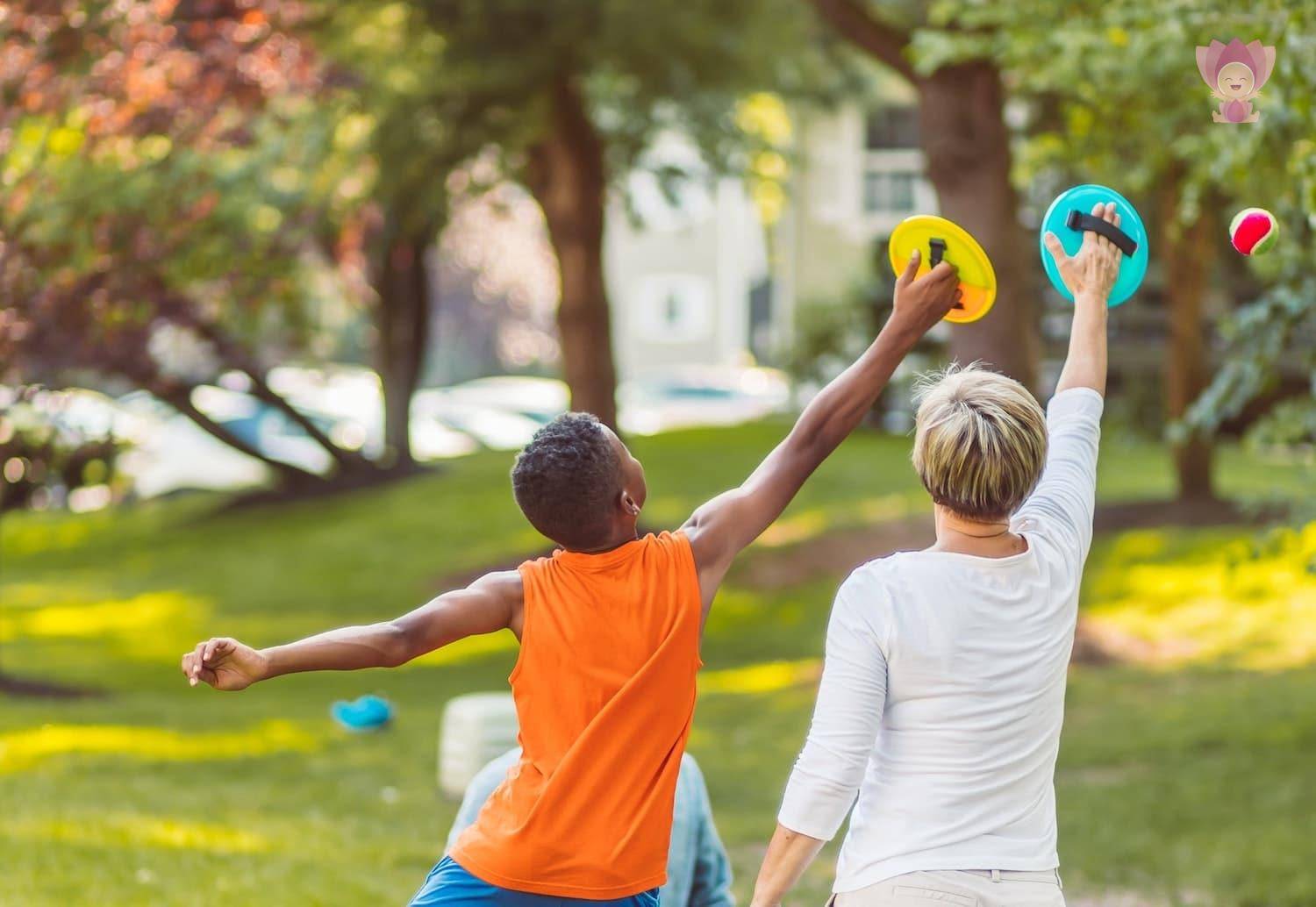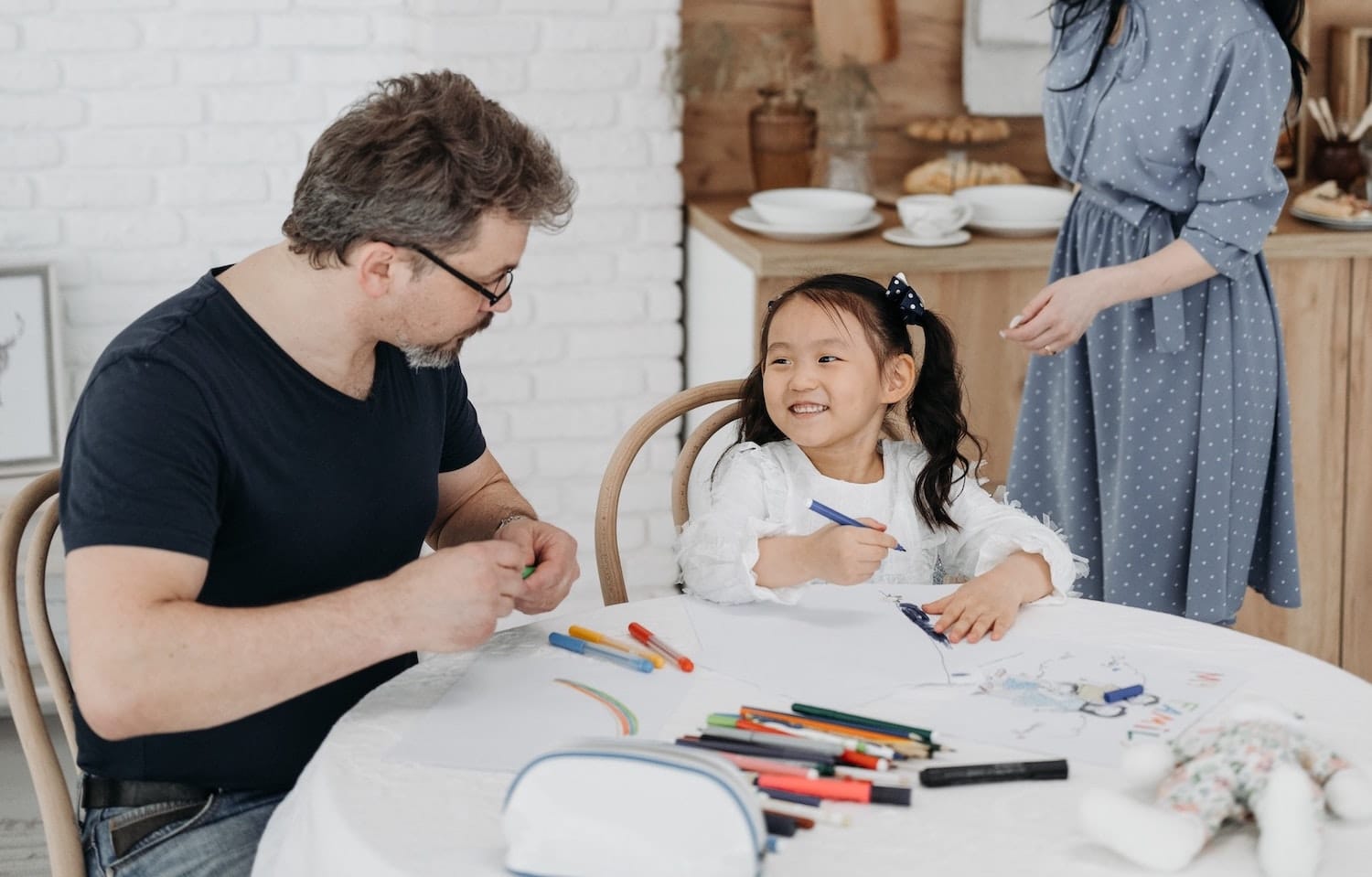Do adopted children inevitably struggle?

Key takeaways for caregivers
- The vast majority of adopted children are well-adjusted. Multiple studies over the past 25 years have found that as many as 9 out of 10 adopted children experience only minor difficulties in their adjustment compared to their peers who were not adopted.
- For the small percentage of adopted children who have significant emotional or behavioral problems, this is more often due to pre-adoption circumstances than to adoption itself.
- Adopted children are not destined to have adjustment problems. While they may experience turbulence and questioning at certain ages, this should not be confused with lasting disturbance.
Lessons from conversations about adoption
When someone I have just met asks what I do, I tell them I am a clinical psychologist. A common response is, “Oh, that must be interesting.” The next question is usually, “Do you have a specialty?” I reply that I work primarily with children and families and specialize in adoption.
What typically follows is a solemn look and in a lowered voice, “Oh, that must be hard!” This is often followed by a story of someone they know (or have heard about) who had a hard time with adoption.
People are usually surprised at what I say next: “Actually, my work is not as hard as you might think.” I add, “You probably don’t know that the vast majority of adopted kids are doing far better than people expect.”
Now either puzzlement or disbelief cross their face. But more often than not, I also see a flicker of curiosity. And many say something like, “I didn’t know that. That’s interesting.”
I assure them that they’re not alone in not knowing: “Most people don’t.”
The negative stereotypes and inaccurate assumptions that exist about adoption color perceptions of adopted children.
The public expects adopted children to be troubled
The Dave Thomas Foundation for Adoption has surveyed public attitudes toward adoption since 1997. Dave Thomas, the founder of Wendy’s, was adopted, and he was very invested in promoting adoption for children in need of stable and loving families.
The surveys consistently show that while support for adoption is high, there is a persistent expectation that adopted children have emotional and behavioral difficulties.
This is not a surprise to most adopted children and teenagers. They often encounter comments and opinions that convey doubt that they could be healthy and thriving. As one ten-year-old adopted boy said, “It is not adoption that is a problem. It is what everyone thinks about it.”
I agree with him. I have been working with adoptive families and closely following adoption research for 40 years. I have also done some of that research.
The negative stereotypes of adopted children
The negative stereotypes and inaccurate assumptions about adoption color perceptions of adopted children. They can have an unfortunate impact on children, their adoptive families, and their birth families (or first families, as some prefer to say). While family ties of adopted children and youth are more complex than those of children and youth raised by two biological parents, they are navigated successfully far more often than not.
Factors that contribute to negative misperceptions of adoption
What we have learned about what it takes for adopted children to thrive during childhood has changed dramatically over the 40 years since I worked with my first adoptive family. It changed as developmental researchers took a different approach to learning about adoption in the 1980s.
Until that time, most professional writing about adoption focused on adopted people who were struggling or in distress, people who had gone into therapy or returned to their adoption agency to address their questions and difficulties. Many of those patients were adults. Some struggled with aspects of their adoption while growing up. For some, their therapist may have suggested that adoption was a source of trauma. In those days, professionals, not just the public, assumed that adoption was always a liability.

Photo: RDNE Stock project. Pexels.
The societal beliefs around adoption
Another feature of that era was secrecy and shame about adoption. Societal beliefs made it more likely that adoption would be a difficult and isolating experience growing up. Adoptive parents were routinely advised to either not tell their children they were adopted or wait until their children were “old enough to understand.” Given that telling is difficult and these instructions were vague, adoptive parents often postponed communicating this information. For those children and youth who were told, some were warned not to share the information with others for fear of stereotyping and stigma.
Sometimes people discovered they were adopted on their own, which left them feeling understandably betrayed and confused. Experiences like these were among the retrospective accounts of adoption gathered in treatment settings. They shaped mental health providers’ understanding of adoption.
Because adoption is a theme that intrigues people almost universally, it has also been the subject of movies, television shows, books, and magazine articles. These portrayals, typically fictionalized and dramatized for entertainment value, also influenced public views of adoption.
Developmental psychology’s shift to a scientific approach to study adoption
In the 1980s, some developmental psychologists began to wonder whether the research on adoption represented too narrow a slice of the adoption experience to provide a thorough understanding. When one is focused on adoption, it is easy to overlook the reality that the lives of most children include challenges as well as opportunities, losses as well as enrichment.
Three questions guided a new, more scientific approach to learning about adoption:
- What can be learned from the experiences of all the adopted children who never entered into treatment?
- What might be learned from adoptive families directly about how their children did during childhood?
- How are children and youth who joined their families through adoption doing compared to non-adopted kids growing up in the same or similar communities?
In this new work, adoptive and non-adoptive families completed the same questionnaires and interviews for direct comparison. This work:
- Provided a broader picture of the adoption experience by recruiting community-based (versus clinical) samples;
- Looked at adoption in real time, rather than in hindsight;
- Relied on information provided by members of adoptive families (mostly parents), rather than professional sources (e.g., therapists), and
- Put adoption into the context of other life experiences, rather than singling it out.
While adoption is complex, it does not predestine a young person to have emotional or behavioral problems.
Looking at adoption through this new lens, what did the research show?
The picture that emerged from this new research was quite different from what many mental health providers had described in their accounts of treatment with adoptees. In these community-based research studies, the vast majority of adopted children functioned in the typical range. Differences between the groups of adopted and non-adopted children were not large.
Findings from this new approach broadened our understanding of adoption. It did not look as problematic as many had believed. This led to some heated disagreements, even between experts, over which picture of adoption really captured the truth.
In the late 1990s, Jeffrey Haugaard, a professor of psychology at Cornell University, reviewed adoption research to address this controversy. Haugaard concluded that being adopted did not in and of itself create adjustment difficulties. As others have, he found small differences in adjustment between adopted children and their non-adopted peers. This did not mean that there were no adopted children with significant struggles – in fact, a very small group had more extreme difficulties. But this group was estimated to be as small as 1 in 10 adopted children, with 9 out of 10 adjusting well and functioning typically.
Haugaard concluded, “There may be a risk of increased behavior or adjustment problems for some adopted children, or for adopted children at certain ages, but this risk is neither high nor widespread.”
Research has continued to confirm that most adopted children are well-adjusted
In the 25 years since Haugaard did his work, research has become more sophisticated. Only 2% of U.S. children under age 18 are adopted, and small study samples can lead to less reliable findings. Two approaches have helped researchers address this problem: 1) using data from national samples that include information about family background, and 2) meta-analysis, which combines results from several studies to expand the sample size and form more robust conclusions.
In an example of the first approach, a large national study of adolescent health and well-being in the United States compared three groups of teenagers who varied in their family makeup. Results showed little difference between adopted teenagers who were living with two adoptive parents and teenagers living with two biological parents. Interestingly, teens whose parents had divorced (and were living with only one biological parent in either step- or single-parent households) had far greater adjustment problems than the other two groups.

Photo: Pavel Danilyuk. Pexels.
These findings are a powerful reminder that while adoption is complex, it does not predestine a young person to have emotional or behavioral problems. Even during adolescence, which most people assume will be the most turbulent time, adopted teenagers have not stood out as a subset with greater difficulties. Children may face other challenges and adjustments as they grow up, such as parents’ divorce, that create greater disruption.
In an example of the second approach, a meta-analysis of adoption outcomes based on 85 studies from around the world confirmed what Haugaard speculated 18 years earlier. The meta-analysis concluded that “most adoptees could be expected to be in the normal range of psychological function and should not be pathologized.” Other large and comprehensive studies have also arrived at conclusions that normalize, more than pathologize, adoption.
How to eliminate false perceptions of adoption through research and accurate messaging
Our understanding of adoption has grown and diversified as researchers have studied different questions and used more rigorous methods. We now have more accurate and generalizable answers, and we know that adopted children are not as troubled as many people expect them to be.
If adopted children and teenagers are not that different from their non-adopted peers, why does adoption get singled out as a source of turbulence during childhood and adolescence? An astute commentary about how adoption is depicted in popular culture made this point: “Negative attitudes and misgivings toward adoption are so ingrained in pop culture that they’re almost invisible.”

Photo: Gabe Pierce. Unsplash.
Along even starker lines, the author of a column published in The Atlantic recounted how the phrase “You’re adopted” as an insult has “enjoyed continued popularity online as a retort or rejection.” The sometimes-subtle and sometimes-blatant derogatory representations of adoption contribute to stubborn and inaccurate assumptions that adoption is associated with disruption.
With the prevalence of negative representations of adoption, the psychological principle of confirmation bias becomes relevant to understanding how inaccurate assumptions about adopted children’s adjustment and well-being persist. Confirmation bias predicts that individuals are more likely to remember stories that confirm what they already believe to be true.
In this case, the belief so frequently reinforced is that adopted children as a group are more troubled or have more problems than their peers who are not adopted. I believe this is why the conversations I described earlier unfolded as they did. This is why remembering, and sharing, the evidence that 9 out of 10 adopted children experience positive outcomes is so important.
















Leave a comment